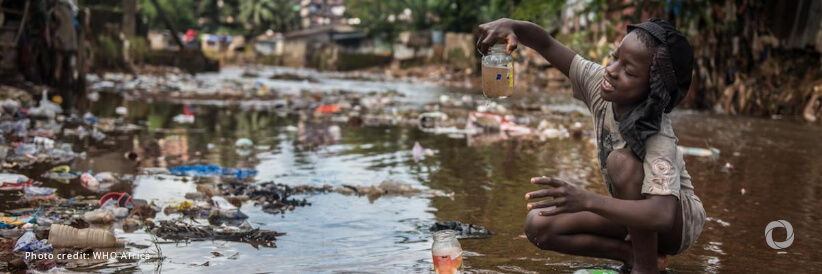Over 178,000 cases of cholera have been confirmed in 16 countries in Eastern and Southern Africa from January 2024 until March 2025, UNICEF reported. Worsened by limited access to water, sanitation, hygiene, and health services, the alarming number has resulted in close to 2,900 deaths, many of which are children.
“Access to safe water is a fundamental need, vital for the survival and development of our children, and most importantly, a human right.” said UNICEF Regional Director for Eastern and Southern Africa, Etleva Kadilli. “We have seen the devastating impacts when communities do not have access to water, sanitation and hygiene services, especially during droughts, floods and disease outbreaks.”
Across the region, South Sudan and Angola have faced the most severe cholera outbreaks, with children under 15 years of age comprising 50 per cent of cases in South Sudan and 40 per cent in Angola. From 28 September 2024 to 18 March 2025, more than 40,000 cases were reported in South Sudan, including 694 deaths country-wide, its worst outbreak in 20 years. Angola has reported over 7500 cases and 294 deaths across 14 provinces from 7 January 2025 to 18 March 2025, with high risks for further escalation.
The latest data from 2022 indicated that almost 120 million people including 60 million children are drinking unsafe water in Eastern and Southern Africa, with up to 22 per cent of the population in the region having no access at all.
According to the latest figures, lack of adequate water, sanitation, and hygiene services has left 174 million people in the region with no access to hygiene facilities at home, and at least 71 million people practice open defecation. These numbers, coupled with the increasing impacts of climate shocks such as severe floods and droughts – which have destroyed key infrastructure such as water supply reservoirs and pipes, and have caused the depletion of groundwater sources – present an increasing threat to children. This includes a higher risk of disease outbreaks such as cholera, which is already present in more than half of the countries in the region.
Drinking unsafe water can lead to infections and waterborne diseases like diarrhea, cholera, and typhoid, which can be fatal. Water-related illnesses and inadequate sanitation facilities can deter children from attending school, particularly girls during menstruation. Additionally, girls bear the brunt of water disruptions in the region, as they are often responsible for fetching water for their households.
Across the region, UNICEF works with partners, including governments, civil society organizations, and communities, to support access to clean water, and reliable sanitation, and to promote basic hygiene practices that keep children safe from infectious diseases.
This World Water Day, UNICEF reaffirms its commitment to supporting children living in humanitarian contexts, especially given the grave consequences for child survival brought on by reduced funding.
Additionally, UNICEF urges governments and stakeholders in the region to prioritize:
- Adequate funding to build resilient systems that can withstand crises and ensure continuous access to safe water and sanitation.
- Political commitments at the highest levels to improve access to safe water and sanitation for children and families in need.
- Scaling up investments in climate change adaptation to accelerate climate resilience of child-critical social services including water, sanitation, and hygiene.
- Increasing water, sanitation, and hygiene sector capacity to effectively address needs during emergencies.
“Investing in climate-resilient WASH infrastructure is crucial for child wellbeing and offers significant cost savings, particularly in humanitarian situations. Thanks to the support of partners, we have built sustainable systems that reduced water supply – related costs by over 90 per cent. These investments must continue, or we risk losing hard-won progress for an entire generation of children. UNICEF is determined to stay and deliver – but we cannot do it alone. We need the continued commitment of governments, the private sector, and individuals who believe that every child deserves a future,” added Kadilli.

